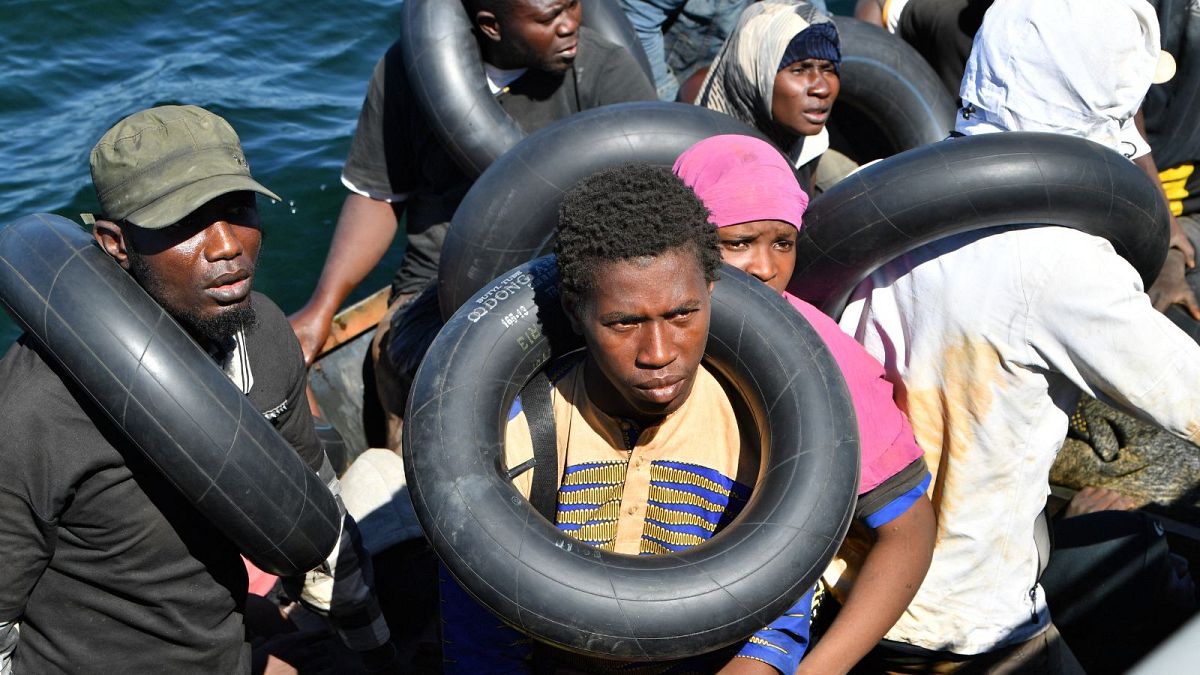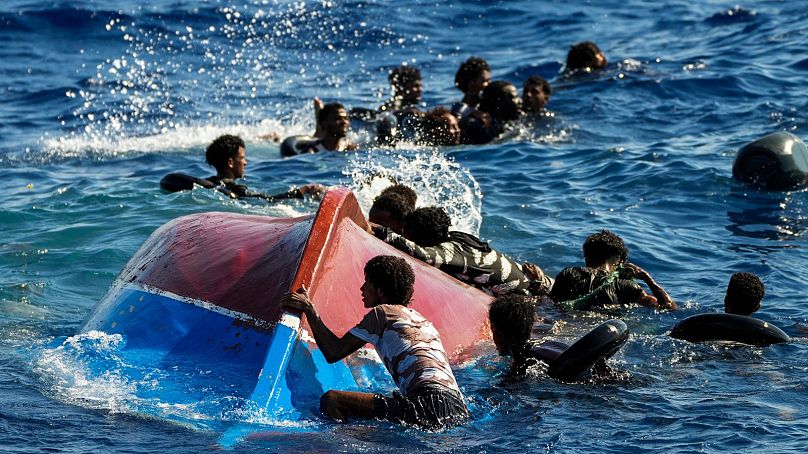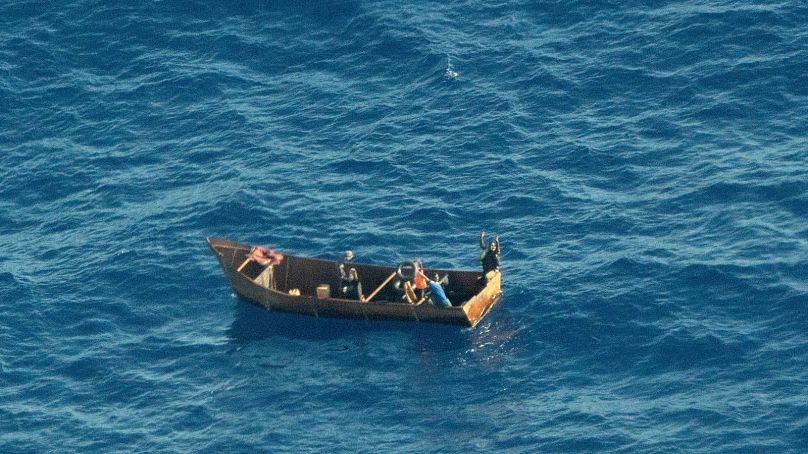The number of migrants arriving on Italy's shores has more than doubled this year, forcing the government to ask for help from the very NGOs it has tried to stop.
After trying to prevent NGOs from rescuing migrants in the Mediterranean Sea, the Italian government is now asking for their help as migrant arrivals surge.
Still, Rome's broader anti-migration stance remains the same. Last week it seized another NGO ship for breaking the country's migrant rescue law after it helped a vessel with 72 people onboard.
The controversial rule passed in February prevents rescue ships from carrying out consecutive operations and often forces them to travel to faraway ports - something NGOs have blasted as a deliberate attempt to frustrate their efforts to save lives.
On Friday, Sea Watch's rescue ship Aurora was seized by Italian authorities after being assigned a destination port they claimed was too far to reach, while the conditions of the migrants they rescued were dire.
Instead of heading to Trapani, on Sicily’s west coast, the ship went straight to the island of Lampedusa, which is currently struggling with overflowing migrant facilities.
For breaking the law, Sea Watch will now be impounded for a total of 20 days, a time during which it won’t be able to assist those in distress at sea.
Grounding the boat at a time when the country is struggling to handle increasing arrivals could sound counterintuitive to some, but others say it reflects the ongoing dispute between the rightwing coalition government led by Giorgia Meloni and the NGOs.
Rome recently asked NGO Open Arms to help them with rescue operations for six migrant vessels - a situation many organisations called paradoxical.
Five NGOs - Medicins sans frontiers, Oxfam Italy, SOS Humanity, ASGI (Association for Juridical Studies of Immigration), and Emergency - formally complained to the European Commission, saying Italy’s law “raises concerns” over its compatibility with EU legislation and member states’ obligations under international treaties.
According to the NGOs, Italy is purposefully assigning rescue ships to the furthest destination ports, something which harms the physical and psychological well-being of those rescued - plus increases costs for rescuers.
The law and the following seizures of four rescue ships in recent months have caused the loss of 100 operational days, say the organisations.
While the Italian government and the NGOs argue, hundreds of people have already died this year in the Mediterranean. Euronews asked an expert in law at sea who should have saved them.
What does the law say?
“There is a very clear legal obligation concerning the duty to rescue people in distress at sea,” Irini Papanicolopulu, British Academy Global Professor of International Law at SOAS University of London, told Euronews.
This obligation can be found in “the most important treaty of what happens at sea,” she said, pointing to the United Nations Convention on the Law of the Sea and customary international law - which applies to all states.
“For example, Libya did not sign the UN treaty, but it’s still forced to rescue people in distress at sea by customary rule,” Papanicolopulu explained. This duty falls on the “master” of the vessel - the individual authorised to represent the vessel by the owner - as well as on states.
“The duties of states are of two different types,” she said. “The duty of the state of the flag that the vessel is carrying, and the duty of the coastal state - that’s the rule that’s coming into play this year,” she added.
“This obliges coastal states to have search and rescue services for people in distress, and to rescue them.”
Papanicolopulu compares the fact that countries can still fail to rescue migrants at sea, as obligated under international law, to how people still commit murder despite it being forbidden.
“There is a legal rule prohibiting murder, but every day, unfortunately, there is someone murdering someone else. So even though we have a legally binding rule, this doesn’t automatically mean that everyone will comply.”
Italy has search and rescue teams deployed across its coasts which have been involved in migrant rescuing operations. And yet more than 1,300 people have died in the Mediterranean this year - the highest number of deaths since 2017.
“The Italian government has been condemned in a number of instances and also by the Supreme Court of Italy, the Court of Cassation, for having failed to comply with the duties concerning rescues at sea,” Papanicolopulu said.
For NGOs, helping migrants in distress at sea is only a duty by law when an incident is occurring. They don’t otherwise have a duty to keep search and rescue ships by a country’s coasts as the Italian government does.
But while it’s not a duty, it’s “legally permitted” for NGO ships to rescue migrants - and even “morally encouraged,” Papanicolopulu said. “But morals are different from the law.”
“The problem is political,” she added. “The laws are quite clear, though there are some details that are unclear, like those about destination ports. The law says that the master must disembark people in distress as soon as possible in a place of safety, but the rules do not identify objective criteria to define how soon is as soon as possible and what a place of safety is.”
Italy “cannot forbid NGOs from rescuing migrants at sea because it would be breaking international law,” said Papanicolopulu. “That’s why it passed all these laws, like the recent decree in February, to discourage them in other ways.”


